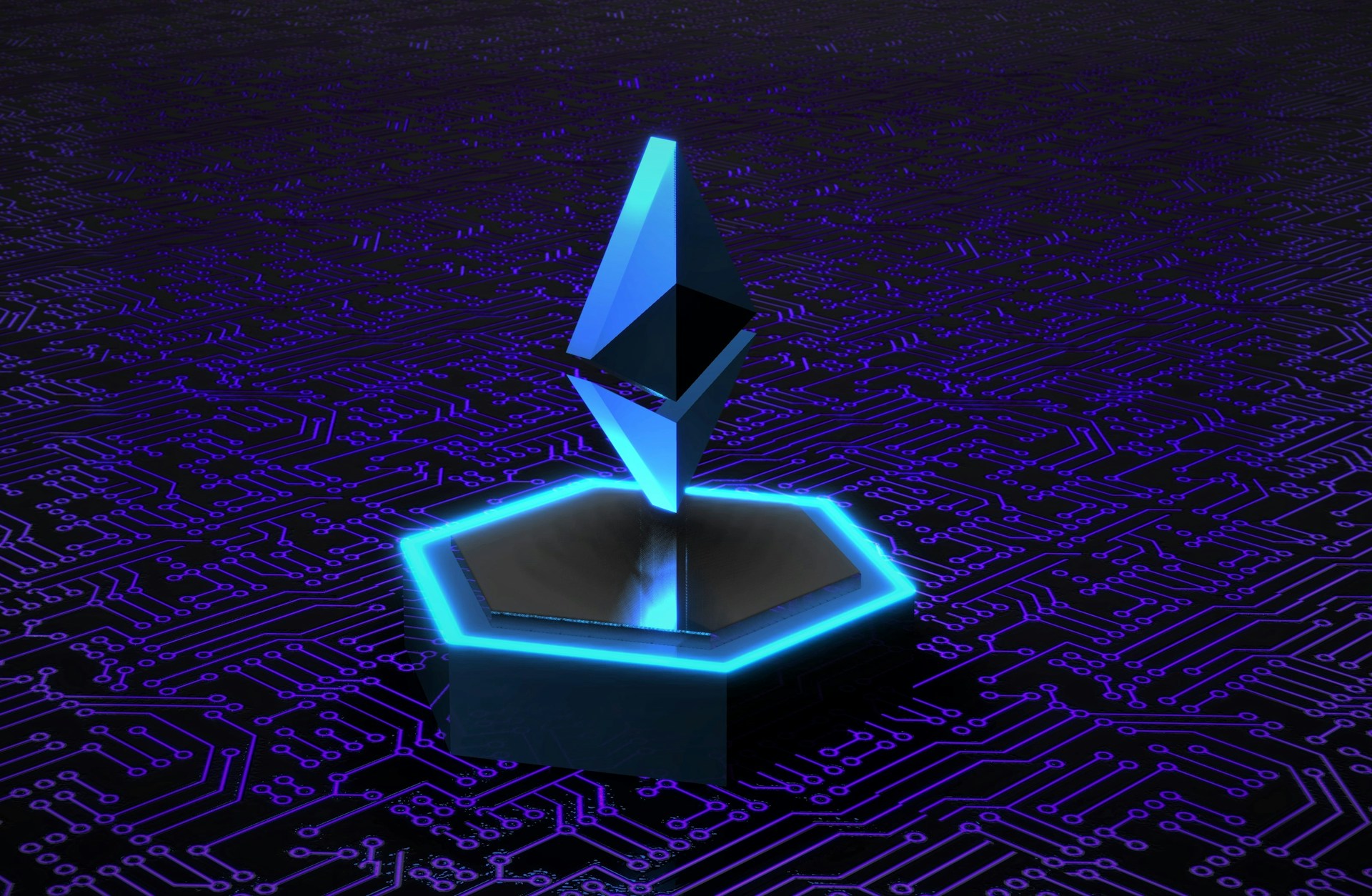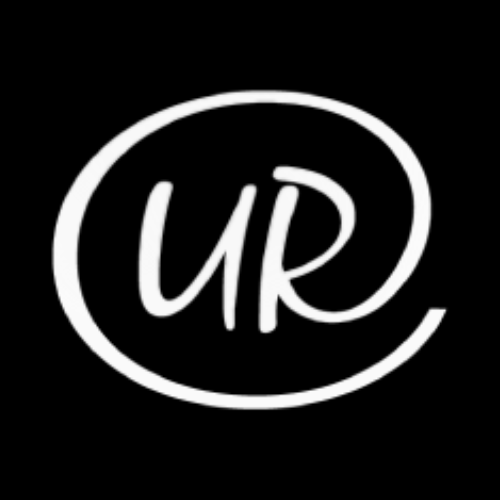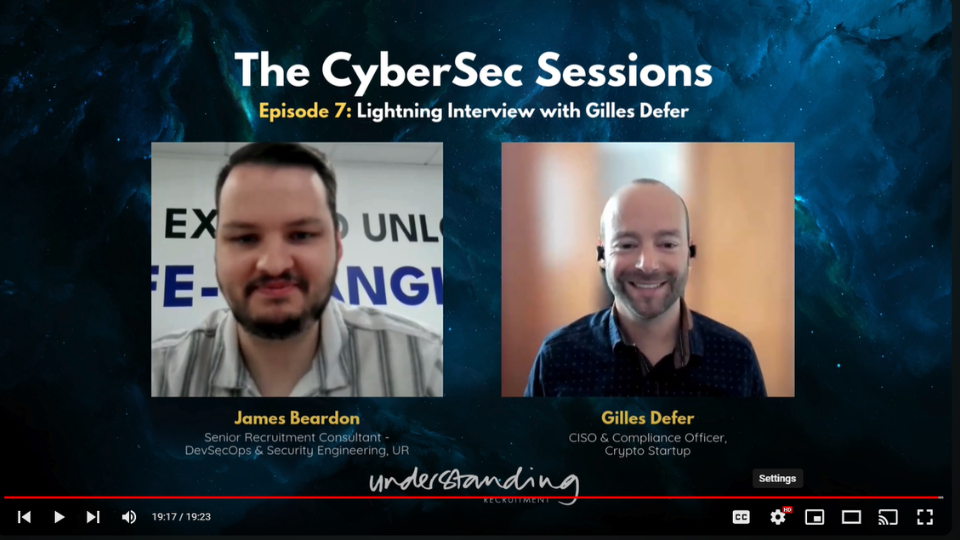Ensuring Digital Trust: Assessing Skills in Crypto Recruitment
5th August, 2024 10 minutes
The demand for skilled professionals in crypto and blockchain is rapidly increasing. Companies seek experts who excel in blockchain development and cyber security strategies and embody the industry's innovative spirit.
Effective recruitment in this specialised field requires more than traditional approaches. Resumes often fail to evaluate candidates' proficiency in blockchain fundamentals, innovative contract development, and cultural alignment with your organisation.
In this guide, we will discuss methods for comprehensively assessing technical skills and ensuring candidates fit seamlessly into your team's culture. By the end, you'll be equipped to build a team that meets and exceeds expectations in driving blockchain technology and digital trust forward.
We will explore the following:
- Assessing technical skills
- Assessing industry experience
- Assessing cultural fit
Part 1: Assessing Technical Skills
Blockchain and crypto professionals are key players in driving innovation and change in the digital world. With the global cryptocurrency industry expected to expand immensely from 2023 to 2030 and span various industries, finding the right professionals to harness this potential is crucial.
How can you ensure that your hires have the technical skills to make an impact and promote digital trust within the industry? This isn’t just about filling a role but equipping your organisation to lead in a competitive and fast-paced industry. Properly assessing these skills is key to the success of your projects, improving operational efficiency, and staying ahead of the competition.
If you are hiring crypto or blockchain professionals, you must ensure they have a strong understanding of blockchain architecture, cryptographic principles, consensus mechanisms, and programming languages. This knowledge base will enable them to tackle complex challenges and drive your projects forward.
What Technical Skills to Look for
Identifying the right technical skills in potential hires is essential for building a solid team capable of handling the complexities of blockchain and crypto projects. Here are the crucial technical skills you should look for:
- Programming Languages: Proficiency in Solidity, Vyper, Rust, Go, Java, C++, Python, and JavaScript is essential. These languages are fundamental for developing smart contracts, blockchain protocols, and decentralised applications.
- Blockchain Platforms and Architecture: Experience with significant blockchain platforms like Ethereum, Hyperledger, Corda, and Quorum is beneficial. Understanding how different blockchains are structured and operated, including the layers within the blockchain technology stack, is essential.
- Cryptography and Security: To protect against vulnerabilities and promote digital trust, a solid grasp of cryptographic principles, including public and private key encryption, hash functions, and digital signatures, is important.
- Distributed Systems and Consensus Mechanisms: Understanding of distributed systems and consensus mechanisms ensures the reliability and efficiency of blockchain networks. Familiarity with various consensus algorithms, such as Proof of Work (PoW), Proof of Stake (PoS), Delegated Proof of Stake (DPoS), and Practical Byzantine Fault Tolerance (PBFT).
While familiarity with specific development and testing tools like Truffle, Hardhat, Hyperledger Composer, and testnets such as Ropsten and Rinkeby can be advantageous, the essential focus should be on the foundational technical skills and understanding of blockchain concepts. Candidates should demonstrate their ability to adapt to various tools and frameworks as needed for project requirements.
Technical Assessment Methods
Finding the right talent means bringing on technical expertise, passion, and innovation to drive your organisation forward. When evaluating candidates for blockchain and crypto roles, it is crucial to ensure they have the skills that align with your technical requirements.
Personalised interviews and targeted written tests are invaluable tools for ensuring the best fit for your blockchain and crypto projects. These methods allow you to assess candidates' technical abilities and potential to contribute to digital trust within your organisation effectively.
Here’s how you can approach assessing their skills:
Blockchain Fundamentals
Understanding blockchain fundamentals is essential for success in roles within your organisation. Look for candidates who can articulate their understanding of concepts like consensus mechanisms, cryptographic principles, and blockchain architecture.
To understand a candidate's level of knowledge regarding blockchain and crypto technologies, employers can ask targeted questions that go beyond traditional assessment methods, such as:
- Explain how blockchain achieves consensus and why it's crucial for decentralised systems.
- Describe the cryptographic principles that underpin blockchain security.
- What are the key benefits and limitations of public versus private blockchains?
Smart Contract Development
Proficiency in innovative contract development is valuable for blockchain roles. Assess candidates’ coding abilities in languages such as Solidity, Rust, and Java and their understanding of smart contract security. To begin this process, hiring managers can ask the following questions:
- How do you approach designing and developing secure, intelligent contracts?
- Describe an intelligent contract project where you implemented complex business logic.
- What measures do you take to ensure the efficiency of smart contracts in terms of gas usage?
Crypto-Specific Problem-Solving
Crypto projects often present unique technical challenges. Evaluate candidates’ ability to analyse and propose solutions to these challenges. To gain a comprehensive understanding of a candidate's experience during an interview, you can ask the following questions:
- How would you address scalability issues in a blockchain network?
- Discuss a security vulnerability in a crypto platform you've encountered and how you resolved it.
- What strategies would you recommend to enhance the privacy of transactions in a blockchain network?
By embedding and asking targeted and specific questions like these, you can effectively evaluate candidates' technical skills and ensure they bring the necessary expertise to contribute effectively to blockchain and crypto projects, promoting digital trust.
These questions are designed to gauge candidates' depth of understanding and practical experience in relevant blockchain and crypto technologies.

Part 2: Assessing Industry Experience
Your hiring team knows that crypto is more than a technology—it's a rapidly developing ecosystem where industry knowledge can make or break success. When you're hiring for crypto roles, understanding why industry experience matters and how to assess it effectively can ensure you find the right professionals to drive your crypto initiatives forward.
In crypto recruitment, each role demands specific industry insights and practical skills. For example, a Blockchain Developer needs hands-on experience with smart contract development. At the same time, a Crypto Product Manager thrives with a deep understanding of market dynamics and user behaviour in the crypto space.
Levels of Experience to Consider
As you assess candidates, consider the breadth of their industry experience:
- Entry-Level: Look for foundational knowledge acquired through internships, academic projects, or certifications on blockchain and crypto technologies. Candidates should demonstrate a grasp of concepts and potential for growth in decentralised applications and innovative contract development.
- Mid-Level: Seek candidates with practical experience in developing and implementing blockchain solutions, managing crypto assets, or leading small-scale crypto projects. They should showcase proficiency in blockchain programming languages and have a track record of contributing to the successful deployment of blockchain applications.
- Senior-Level: Look for individuals with a proven track record of leading significant blockchain initiatives, contributing to industry advancements, or shaping crypto strategies. These candidates should possess deep technical expertise, strategic vision, and a demonstrated ability to adapt to evolving technologies in the blockchain space.
By prioritising industry-specific experience and its alignment with your organisation's crypto requirements, you ensure your team is staffed with professionals capable of driving successful crypto initiatives and supporting digital trust.
How to Assess Experience Levels Practically
Candidates with industry experience bring practical insights, innovation, and adaptability to your team, so it's essential to assess a candidate's whole level of project-based experience by focusing on various areas.
Unlike other industries, experience is typically more valued than qualifications alone. Still, candidates simply listing their previous employment or activities may not provide you with the knowledge you need to determine whether they can undertake specific role responsibilities.
Candidates with varying levels of experience bring distinct capabilities to your team. Here's how to evaluate their readiness for roles in the crypto industry:
Entry-Level Positions
Assessing foundational knowledge and potential for growth is crucial for roles like Blockchain Intern or Crypto Research Assistant.
Assessment Examples:
- Conduct a technical knowledge test to gauge understanding of blockchain fundamentals and smart contract development.
- Ask candidates to analyse a simple case study on blockchain implementation or crypto asset management.
- Have candidates present an academic or internship project related to blockchain, emphasising their contributions and lessons learned.
Sample Questions:
To evaluate entry-level candidates effectively, consider questions such as:
- Can you explain the concept of a smart contract and its practical applications?
- How have your academic projects or internships prepared you for working with blockchain technologies?
- What steps have you taken to further your knowledge of decentralised applications and their potential in various industries?
Mid-Level Positions
For roles like Blockchain Developer or Crypto Project Manager, practical experience and the ability to handle complex responsibilities are key.
Assessment Examples:
- Assign a technical task to assess proficiency in blockchain programming languages like Solidity.
- Present a problem-solving scenario for managing crypto assets or scaling blockchain solutions and evaluate their strategic approach.
- Review their project portfolio or contributions to open-source initiatives in the blockchain space for insights into their capabilities.
Sample Questions:
When evaluating mid-level candidates, explore questions like:
- Describe a blockchain project you have led or significantly contributed to. What were the key challenges, and how did you overcome them?
- How do you stay updated with the latest developments and advancements in blockchain technology? Can you give an example of how this knowledge has influenced your work?
- What strategies have you used to ensure the security and scalability of blockchain solutions in your previous projects?
Senior-Level Positions
Leadership, strategic vision, and industry contributions are essential for roles like Blockchain Director or Chief Blockchain Officer (CBO).
Assessment Examples:
- Conduct a leadership simulation where candidates navigate a significant blockchain initiative or address regulatory changes in the crypto space.
- Request an innovation pitch for a new blockchain-based solution or strategy that could disrupt the industry, assessing their vision and strategic thinking.
- Engage in a detailed discussion about a significant blockchain project they have led, focusing on their leadership impact and contributions to industry advancements.
Sample Questions
To assess senior-level candidates effectively, consider exploring questions like:
- Can you share a time when you successfully influenced the direction of a blockchain initiative or strategy within your organisation?
- How do you foresee the future of blockchain technology evolving, and what role do you believe senior leaders should play in shaping this evolution?
- What innovative approaches have you championed in your career that have significantly impacted the adoption or efficiency of blockchain solutions?
Practical assessment of candidates at different levels in the crypto industry involves tailoring questions and tasks to their experience and expected role responsibilities.
Whether evaluating foundational knowledge in entry-level candidates, practical experience in mid-level roles, or leadership and strategic vision in senior-level positions, these assessments ensure that your team is equipped with professionals capable of driving successful blockchain initiatives.

Part 3: Evaluating Cultural Fit
Assessing cultural fit is crucial for crypto roles. In addition to evaluating industry knowledge and experience, it's essential to ensure that candidates align with the crypto industry's values and broader culture. This alignment promotes effective collaboration, innovation, and digital trust within your team.
Candidates who fit culturally bring more than technical skills; they understand the industry's challenges, regulatory frameworks, and the drive for innovation in blockchain. Prioritising cultural fit strengthens our team and aligns us with the values driving innovation in the crypto and blockchain industry.
What to Look for
When evaluating cultural fit in candidates for crypto and blockchain roles, consider these key aspects:
- Adaptability and Innovation: The crypto industry moves fast with constant technological advancements and regulatory changes. Look for candidates who thrive on change, innovate solutions, and enthusiastically embrace new challenges.
- Ethical Integrity: Integrity is fundamental in crypto, where trust and transparency are at the core. Assess candidates' ethical awareness and approach to coordinating blockchain technologies' ethical complexities.
- Community Engagement: Active participation in the crypto community is highly valued. Seek candidates who contribute to open-source projects, engage in meaningful discussions, or showcase a genuine interest in advancing the industry.
- Risk Management: Crypto and blockchain have inherent risks, from cybersecurity threats to regulatory uncertainties. Evaluate candidates' ability to assess risks and implement robust security measures.
- Passion for Decentralisation: Cryptocurrencies aim to decentralise power and empower individuals globally. Seek candidates passionate about blockchain technology's transformative potential in reshaping industries and enhancing societal fairness.
Assessment Methods
When assessing candidates for crypto and blockchain technology roles, evaluating their technical expertise, interpersonal skills, and cultural fit within your organisation is important. These roles demand a unique blend of technical proficiency and soft skills to innovate and navigate the complexities of the crypto industry effectively.
Here are effective methods to assess these qualities comprehensively:
Interpersonal Skills Assessment
Effective communication, collaboration, and leadership are critical for crypto professionals to work efficiently in teams and engage with stakeholders. Here's how you can assess their interpersonal skills:
- Communication Skills: Evaluate candidates' ability to articulate complex technical concepts to technical and non-technical stakeholders. Ask for examples of how they've communicated technical information in previous roles or projects.
- Collaboration Experience: Assess candidates' experience leading and participating in cross-functional teams on blockchain projects. Inquire about their role in team dynamics, contributions to project success, and handling of collaborative challenges.
Cultural Fit and Soft Skills Assessment
Cultural fit ensures candidates align with your organisation's values and work environment. Determining the right cultural fit for your organisation will vary based on your ethics and workplace environment. Asking specific questions can help you ascertain whether crypto candidates suit your team.
You can evaluate soft skills such as adaptability, problem-solving, and ethical awareness through:
- Scenario-based Questions: Present scenarios related to blockchain projects or industry challenges and ask candidates how they would approach these situations while considering diverse perspectives and ensuring inclusivity.
- Values Alignment: Discuss the candidate's personal values and how they align with your company's mission and culture. Inquire about their approach to ethical dilemmas and commitment to maintaining high standards in the crypto industry.
If the blockchain or crypto role that you are recruiting for requires specific soft skills like communication or teamwork, you can use this practical exercise to evaluate their cultural fit:
- Scenario: "You are part of a diverse team developing a blockchain solution for a social impact project. Describe how you would approach integrating diverse perspectives and ensuring inclusivity in the project's development process."
Specific scenario questions enable you to assess how candidates would realistically respond to critical situations, such as a Cryptocurrency Analyst's reaction to market volatility or a blockchain developer's collaboration with other departments.
Tailor the questions and scenarios according to your company's unique values and role requirements to optimise tech recruitment efficiency.

Enforcing Digital Trust: Final Thoughts on Crypto Recruitment
In the crypto and blockchain industry, assembling a robust team requires more than technical skills alone. While expertise in blockchain development and smart contracts is crucial, assessing how well candidates align with your company’s culture and the broader crypto ecosystem is equally vital.
By prioritising candidates who can navigate challenges, innovate within blockchain technology and support digital trust, you ensure your team is ready to drive significant advancements. Evaluating their alignment with your company's values and their passion for the crypto industry also ensures they'll contribute positively to your team dynamics.
Experts in Streamlining Tech Recruitment Strategies
At Understanding Recruitment, we understand the tech industry and the significance of crypto roles in the developing technological environment. Our priority is building trust and reliability in digital environments, ensuring the success of both clients and candidates. Operating seamlessly across the UK, Europe, and the US, we aim to be your reliable partner for all your crypto recruitment needs.
Contact us today to discover how we can support your hiring needs, from recruitment insights to sourcing professionals that promote digital trust.



